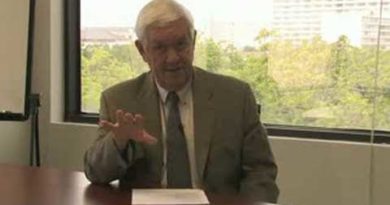Should you use a trust or a will?
When planning your estate, it is important to make informed decisions. A lot of people think that you should use a will as your primary asset transfer vehicle under almost all circumstances.
In reality, this is not the case at all. We believe that a revocable estate plan is the best way to plan for your estate, no matter how large it may be. There are many reasons why you might want to use a revocable trust instead of a Will. Let’s look at a few of them to provide some insight.
Probate Avoidance
You may think that a will is the simplest way to get property into the hands of your loved ones. It may be relatively simple to create the document if you have the right legal assistance. When you create a Will, you name an executor. This person will be the administrator when you pass away. When the time comes, the executor cannot simply read the will to the interested parties and then start to distribute the assets to the inheritors.
The will would be admitted to probate, and the court would supervise during the administration process. During probate, the court will examine the will and determine its validity. Assets are identified and inventoried, and they will be prepared for distribution.
This process does not run its course overnight. It can take some time for assets to be liquidated and creditors to come forward. No inheritances are distributed while probate is underway, and it will typically take nine months to a year, or more, to complete the process.
Anyone who has an interest can access probate records to find out what transpired, so privacy is lost. This also allows for disgruntled individuals to challenge the will. If all of this is not appealing, you can use a revocable trust instead of a Will. When you have a trust, the trustee would be able to distribute assets to the beneficiaries outside of probate, so these negatives would never enter the picture.
Spendthrift Protections
A given individual may not be prepared to handle a significant inheritance received all at once. If you have a simple trust, you can do the same thing. However, if you don’t have a trust, you can add a clause that prevents you from spending money. This clause will become irrevocable upon your death. The beneficiary wouldn’t be able touch the principal directly, and the beneficiary’s creditors would “step into their shoes.” They would not have the ability to access the principal because the recipient would not have that access. Spread them out over a longer period of time in order to prevent poor money-management. For example, you can instruct the trustee to distribute a certain amount every month.
Nursing Home Asset Protection
About 70 percent of seniors will require long-term care eventually. Over one-third will live in nursing homes. In Oklahoma City, where we practice, these facilities cost about $100,000 per year. Unfortunately, Medicare does not pay for the custodial care nursing homes provide.
Medicaid is the widely embraced solution because this program does pay for long-term care. Medicaid is a health insurance program based on need. You cannot qualify for Medicaid if you own assets worth more than $2,000.
In this case, you can transfer assets into a Medicaid income-only trust. This would be an irrevocable trust, so you would not be able to touch the principal.
However, as the name would indicate, you could continue to receive the trust’s earnings as an ongoing source of income. If and when you apply for Medicaid, the principal will not count.
Check Out Our Testimonials!
We are gratified by the kind words that have been shared about us by our clients. If you would like to see what other people have to say about their experiences with us, check out our reviews page.
Schedule a Consultation Today!
If you are ready to put an estate plan in place, we are here to help. Call us at 405-843-6100 to schedule a consultation at our Oklahoma City estate plan office. You can reach our Tulsa office at 918-615-2700. You can also use our contact form. Larry Parman, Attorney At Law
(see all)






